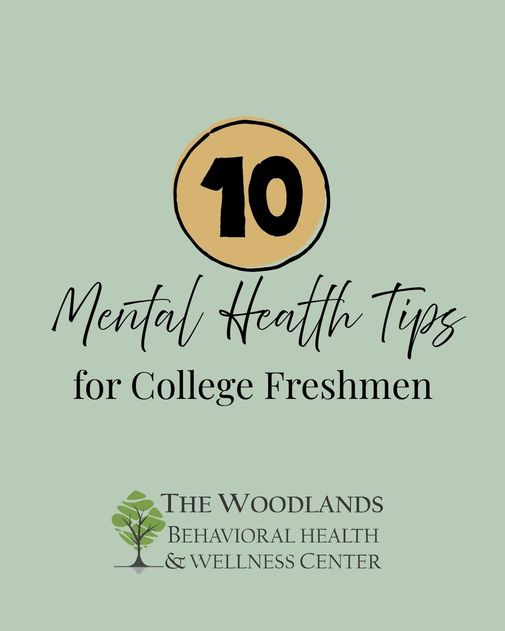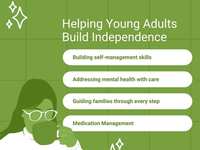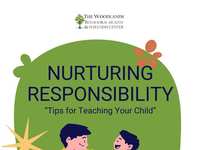- Categories :
- More
10 Mental Health Tips for College Freshmen from The Woodlands Behavioral Health & Wellness

Starting college is exciting, but it can also feel overwhelming. With the freedom and responsibility that come with this new chapter, it’s easy for mental health to take a backseat. To help you thrive—both academically and emotionally—our experts at The Woodlands Behavioral Health & Wellness have compiled ten essential mental health tips for freshmen.
1. Build a Routine Early
College life offers flexibility, but your mind and body benefit from structure. Create a daily schedule that includes consistent sleep, meal times, classes, and breaks. This is especially important for students who struggle with executive functioning or ADHD, as a reliable routine can provide stability and reduce stress.
2. Don’t Skip Sleep
Pulling an all-nighter might seem like a rite of passage, but lack of sleep can harm your memory, focus, and mood. Aim for 7–9 hours of rest each night. Quality sleep isn’t just about energy—it’s one of the pillars of good mental health.
3. Know Your Stress Signs
Stress shows up in different ways: headaches, irritability, withdrawing from friends, or sleep disruptions. Pay attention to your body’s signals so you can step in early with healthy coping strategies before things spiral.
4. Use Campus Resources
Most colleges offer free or low-cost counseling, academic support, and disability services. Don’t wait until you’re in crisis—reach out early to these resources to build a strong support network from day one.
5. Create a “Success Team”
Find your go-to people. This could be a trusted friend, a resident advisor, an academic advisor, or a therapist. College is full of transitions, and having people you can lean on makes the journey less stressful and more rewarding.
6. Limit Social Comparison
Scrolling through social media can make it seem like everyone else is thriving, but remember that you’re only seeing their highlight reel. Focus on your own progress and growth rather than measuring yourself against others.
7. Balance Social and Solo Time
College is a great opportunity to build new friendships, but constantly being “on” can lead to burnout. Make time for solitude and recharge in ways that feel restorative for you.
8. Practice Mindful Tech Use
Set boundaries with technology, especially social media and gaming apps. Overuse can interfere with focus, mood, and sleep. Students who are neurodivergent may be especially sensitive to the mental drain of tech overexposure.
9. Reframe Failure
Didn’t ace your first exam? Had an awkward roommate moment? These experiences are normal. Think of mistakes as learning opportunities rather than personal failures. Resilience grows when you practice self-compassion.
10. Consider Therapy or Coaching
Therapy or ADHD coaching can be transformative, whether you’re managing anxiety, executive functioning challenges, or general overwhelm. Support is valuable for every student—not just those in crisis.
Taking care of your mental health isn’t just about surviving college—it’s about thriving. If you’re ready to build healthy habits and resilience, learn more about how we help students succeed at addwoodlands.com.
















